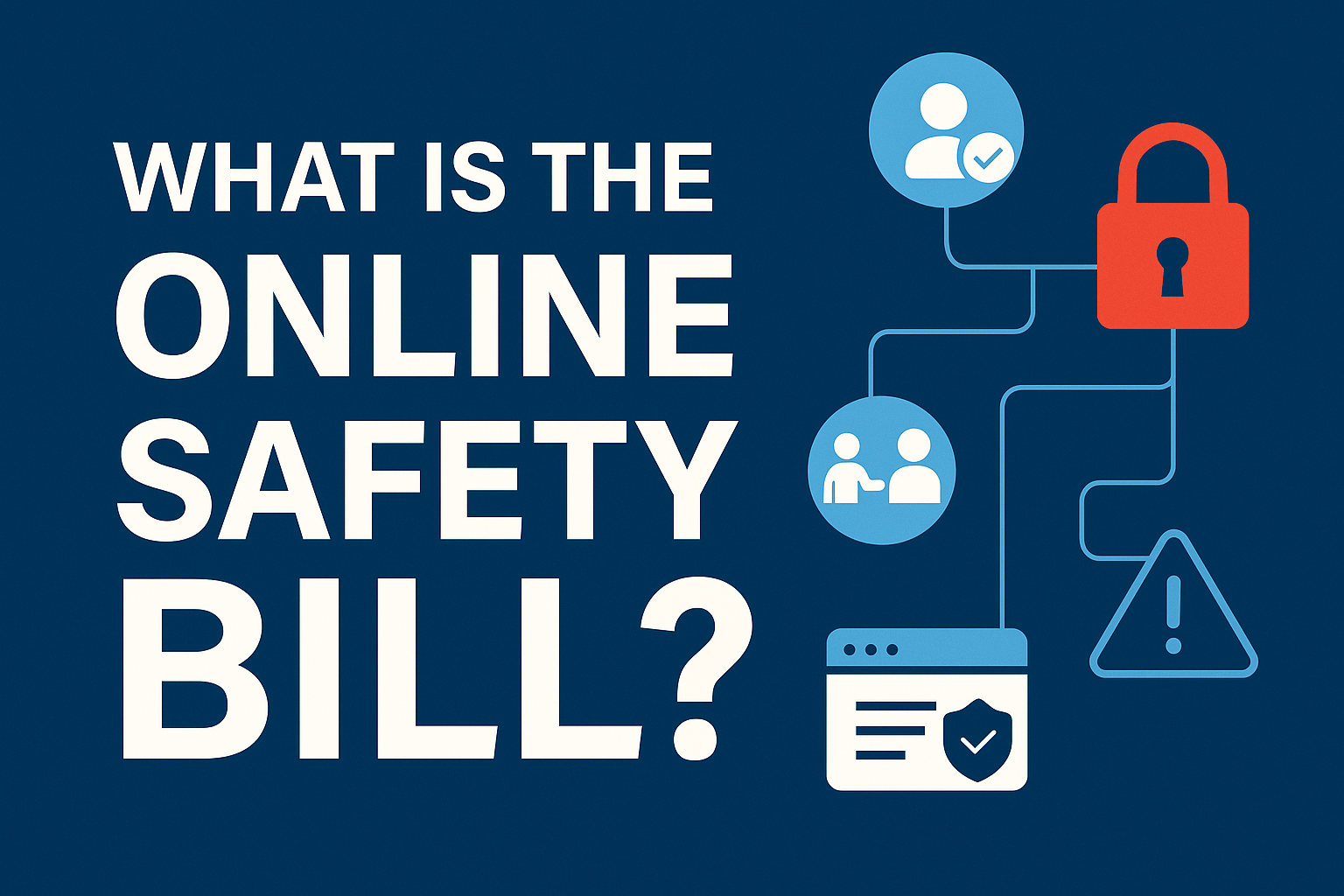The Online Safety Bill is a landmark piece of UK legislation designed to make the internet safer for everyone—especially children. First published as a draft on 12 May 2021, it follows the Government’s Online Harms White Paper and introduces a comprehensive regulatory framework that compels UK tech companies to take responsibility for the content on their platforms.
In this blog, we’ll explain how the bill affects online businesses, why age verification is essential for compliance, and what your company can do now to prepare.
The Origin: Online Harms White Paper
The Online Safety Bill stems from growing public concern over illegal content, cyberbullying, and child exploitation online. The UK Government responded with the Online Harms White Paper, which marked the beginning of a bold plan to “make Britain the safest place in the world to be online.”
With the increasing accessibility of the internet and the rise of user-generated content, it became clear that existing regulations weren’t enough. The Online Harms Bill was the first step toward systemic change.
Who Will Be Affected by the Online Safety Bill?
The bill primarily impacts businesses that:
- Allow user-to-user interactions
- Host user-generated content
- Provide search engine services
This includes social media platforms, video-sharing websites, dating apps, forums, and any online service where users can upload or share content. If your business operates in these sectors, you’ll be legally required to assess the risks posed to children and introduce safety features, such as age verification technology.
What Are the New “Safety Duties”?
The Online Safety Bill introduces strict new “safety duties” for tech companies. These include:
- Removing illegal content quickly and effectively
- Preventing the spread of harmful material
- Assessing whether children are likely to access the service
- Implementing robust age verification software to protect minors
Failure to do so could result in severe regulatory penalties.
When Will the Online Safety Bill Become Law?
While there’s no fixed date, the Online Safety Bill has strong backing from Government and was featured in the Queen’s Speech—highlighting its national importance.
The next stages include:
- Pre-legislative scrutiny by a joint committee from the House of Commons and House of Lords
- Formal introduction to Parliament (expected after summer 2021)
- Full legislative review, which may take several years
However, with strong public and political momentum, UK businesses are urged to prepare now rather than wait.
‘Safety by Design’ and Government Guidance
On 29 June, the Department for Digital, Culture, Media and Sport (DCMS) released new guidance to help businesses create safer digital environments. The emphasis is on:
- Data privacy and child protection
- Minimising risk on live streaming and user-generated content platforms
- Encouraging “safety by design” practices in product development
This aligns with the upcoming Age Appropriate Design Code (AADC), another major shift in digital regulation.
What Is the Age Appropriate Design Code (AADC)?
The AADC comes into force on 2 September and sets out 15 data protection standards for online services likely to be accessed by children in the UK.
Key elements include:
- Recognising the age of individual users
- Tailoring content and data practices to their age group
- Using age verification tools to prevent access to inappropriate services
The AADC is a direct result of the EU Audio-Visual Media Services Directive (AVMSD) and places strong emphasis on user privacy and platform accountability.
What Are the Risks of Non-Compliance?
The draft version of the Online Safety Bill gives Ofcom—the UK’s media and communications regulator—the power to:
- Fine companies up to £18 million or 10% of global turnover (whichever is higher)
- Pursue criminal penalties against senior managers and executives for persistent non-compliance
This is one of the most significant regulatory changes to hit the UK’s digital sector and will affect businesses of all sizes.
Online Safety Is Now a Legal Responsibility
Online safety is no longer just an ethical consideration—it’s a legal requirement. Both the Online Safety Bill and AADC aim to create a secure digital space for users of all ages, especially children. Businesses must now build in safety features from the ground up and demonstrate that they are protecting their users in meaningful ways.
How 18Verified Helps Your Business Stay Compliant
At 18Verified, we make age verification simple, secure, and cost-effective. Our technology ensures you comply with UK regulations while delivering a seamless experience to your users.
- ✅ Frictionless user journey
- ✅ Certified to PAS 1296:2018 standards
- ✅ API or plug-and-play options
- ✅ Affordable subscription model
- ✅ One login across all participating 18+ sites
Whether you’re a content creator platform, ecommerce business, or adult service provider, 18Verified helps you stay ahead of the curve and avoid costly mistakes.
Take Action Today
Want to avoid fines, protect your users, and meet all upcoming legal requirements?
👉 Learn more about 18Verified
👉 Speak to our team
Tags: Online Safety Bill, UK internet law, age verification software, AADC, digital safety, child protection, PAS 1296, 18Verified, regulatory compliance, Online Harms Bill

